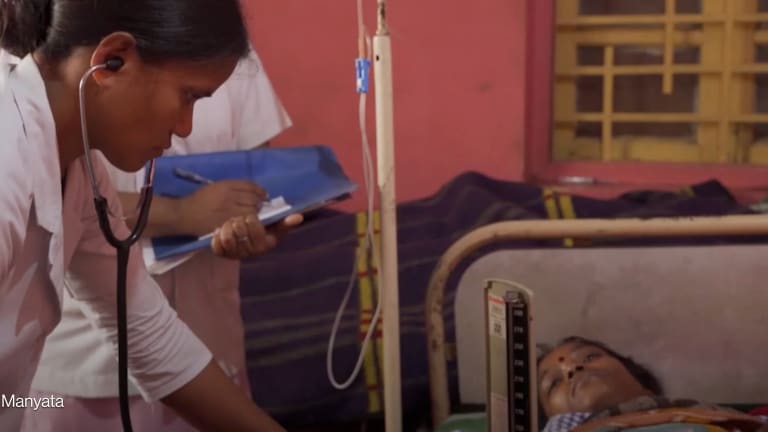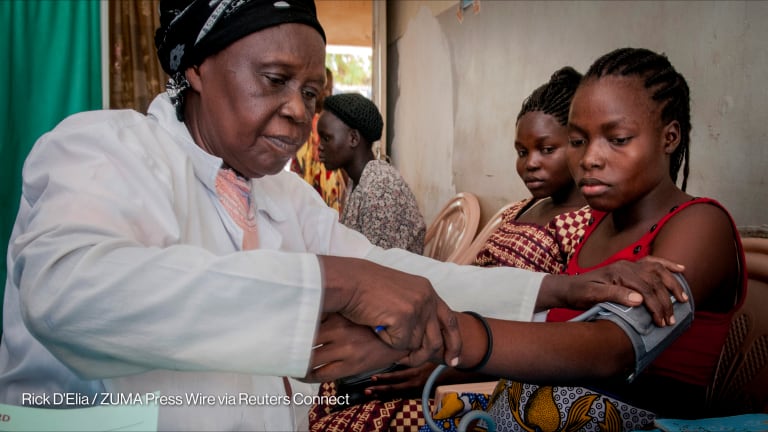
KANO, Nigeria — In places such as Rimin Gado, a local government area in northern Nigeria, a lack of certified midwives often leaves community health extension workers with no choice but to assist with childbirths. In this remote region, nestled three hours by road from the nearest commercial hub of Kano, many women choose to deliver at home without any birth attendant.
Join Devex on the ground to learn how the DFID-funded maternal health program has stepped in.
Community health workers — trained in hygiene and basic health with no specialist medical knowledge — conduct deliveries, Aisha Yunuss, a 21-year-old midwife trainee who lives in the area, told Devex during a recent visit to the Dambatta School of Basic Midwifery. “Because of the absence of midwives, even some students of hygiene conduct deliveries … and that is not appropriate for the profession.”
The absence of trained health workers is in part to blame for Nigeria’s high number of maternal deaths — the highest in the world. In Africa’s most populous nation, 1 in 13 women will die from pregnancy or childbirth-related complications, compared to 1 in 31 across sub-Saharan Africa as a whole.
Nigeria has one of the highest maternal mortality rates in the world, in part because of limited assistance from certified medical professionals during childbirth. In this two-part series, we look at why that is, and what can be done about it. Read the first part of the series here.
The compounding elements of poor health infrastructure, conflict, and displacement mean that women in northeast Nigeria are most at risk, with 1,549 deaths per 100,000 live births — almost double the national average. Severe bleeding and infections after childbirth are leading killers, while obstructed labor complications and other conditions predicated by a lack of quality antenatal care also contribute.
Medical staff at hospitals and health clinics in the region are typically male. Sensitivities around this cause many women to shun treatment at these facilities — making female health workers key to reversing the norm of home deliveries.
In recent years, health proponents and international aid agencies have attempted to address the issue in various ways. In 2009, the government established the Midwives Service Scheme — the first public sector initiative between local, state, and federal governments to mobilize midwives for deployment to primary health care facilities in rural communities. The goal was to increase the presence of skilled obstetric care providers in far-flung areas.
By 2015, the program had served more than 10 million people at 652 primary care clinics across Nigeria and saw great gains in maternal health, experts told Devex, until an expanding insurgency caused many health workers to flee due to security concerns. World Health Organization records indicate that from 2000-2015, government policies and international efforts reduced the maternal mortality rate in Nigeria by 30 percent.
But those gains are at risk.
Read the rest of the story here.
Editor’s Note: The reporter traveled to Kano with the support of DAI. Devex retains full editorial control and responsibility for this content.
Update Nov. 11 2018: This article has been updated to clarify that Rimin Gado is in northern Nigeria.








